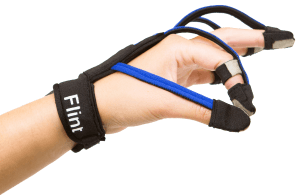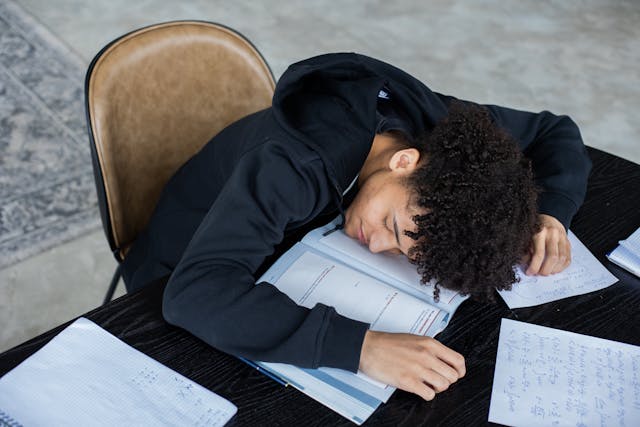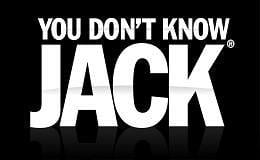
Chances are, you know someone with a stroke. That’s because every 35 seconds somebody in the U.S. is experiencing a stroke for the first time. Many of these individuals go on to have limited movement in their hand and fingers, even though research has shown that rehabilitation can improve this ability. The problem is that there are limited options for hand therapy, and most of them are either only available in clinics, or are too boring for people to stick with them at home. Flint Rehabilitation Devices is a new rehabilitation device company that has set out to change that. “We believe that high-quality rehabilitation shouldn’t be limited to clinics. People should be able to continue their therapy at home. But for that to work, the therapy has to be fun, engaging, and most importantly effective. All three of these elements are crucial to recovery after neurologic injury,” says president and co-founder Nizan Friedman, Ph.D.
To meet these goals, the group recently launched a new FDA approved rehabilitation device called the MusicGlove. Check out the video on their website to learn more.
The device is a sensorized glove that users wear to play a therapy-based music game similar to GuitarHero. Users make specific gripping movements to hit notes on the screen that are synchronized to a song. Practicing these movements—such as key-pinch grip and pincer grasp—are crucial for regaining hand function after stroke. The device also records each user’s progress so that they can easily track their improvement and set goals. “We commonly hear from clinicians that their patients are coming to therapy early so that they can be first in line to use the MusicGlove. Patients are laughing, singing along, and are actually excited to go to their therapy sessions,” states Dr. Friedman.
But the million dollar question is: Does it work? In randomized controlled trials of the device in both home and clinical settings, people that used the MusicGlove had significantly greater improvements in hand function than those that received conventional hand therapy. After 3 weeks of therapy with the MusicGlove, users reported suddenly being able to open a doorknob, wash dishes, fasten a bra, type on a keyboard, and use the restroom, often for the first time in months. These improvements in activities of daily living can greatly increase a person’s ability to function independently.
Why does it work so well? “The secret is in the music”, Friedman says, “Participating in music has been shown to lead to neural plasticity and cortical reorganization in the brain.” In other words, music improves the brain’s ability to recover after a stroke. Further, music is rhythmic, so it naturally promotes a high number of repetitions. People using the MusicGlove typically make over 2000 movements in a 45 minute session. This high number of repetitions is critical to recovery. Finally, music is engaging. The MusicGlove offers a form of therapy that is fun and will keep the user motivated to continue their rehabilitation regimen.
The device is currently being used in the top rehabilitation centers around the country, including the Rehabilitation Institute of Chicago, UCLA Medical Center, UC Irvine Medical Center, and Rancho Los Amigos National Rehabilitation Center. But what makes the MusicGlove truly unique is that people are also using it in the comfort of their own homes. You can order one directly from their website for $99/month for 12 months.















